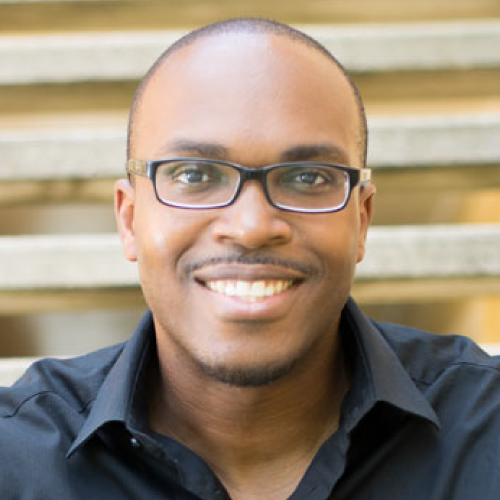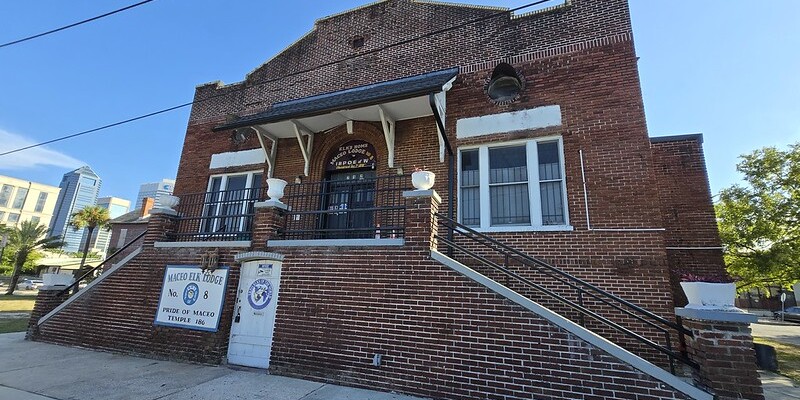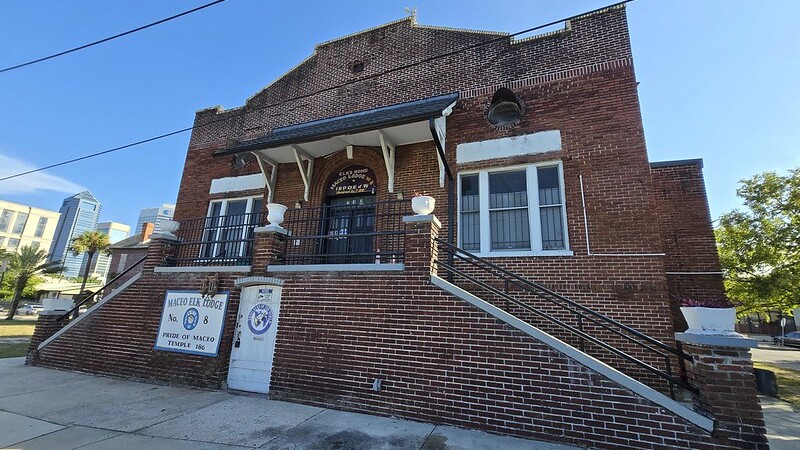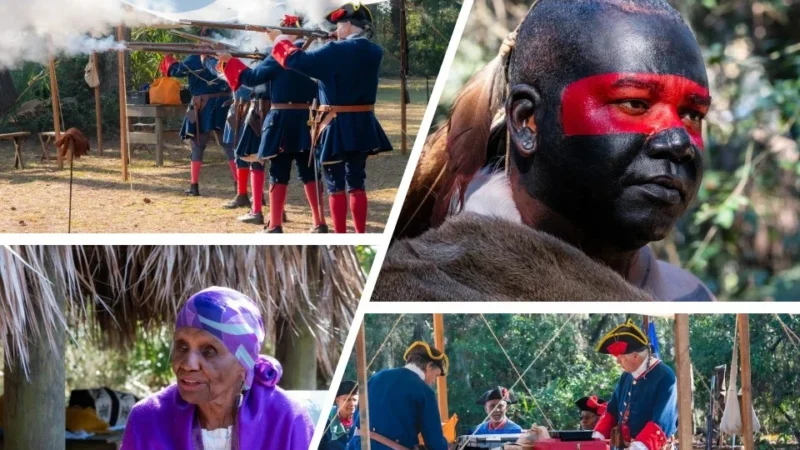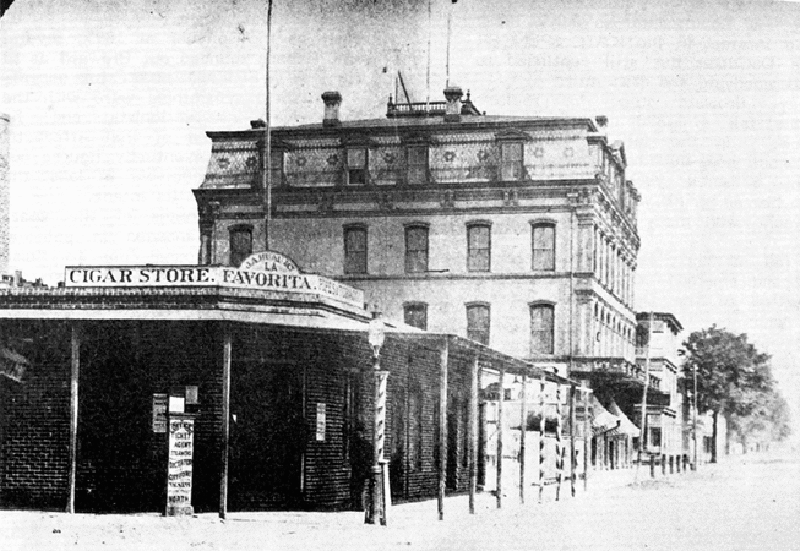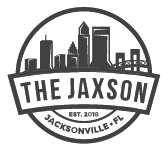
Originally constructed as the Young Men’s and Young Women’s Hebrew Association, the Maceo Elks Lodge No. 8 at 712 W. Duval St. is the last surviving institutional building in LaVilla connected to Jacksonville’s early Jewish community.
During the 1880s, Yiddish-speaking Jewish immigrants from Russia and Romania settled in Jacksonville, with many living and working in LaVilla. At the time, Jacksonville offered an appealing alternative to the crowded industrial cities of the North. These immigrants carried with them strong ties to Orthodox Judaism, and in 1901, they established the B’nai Israel Orthodox Temple at West Duval and Jefferson streets.
The Young Men’s Hebrew Association (YMHA) was part of a national movement that began in Baltimore in 1854 and expanded to New York City in 1874. By 1888, the Young Women’s Hebrew Association was formed as an auxiliary group. Together, the organizations promoted health, education, recreation, democratic engagement and Jewish cultural life across the U.S. and Canada.

In 1910, LaVilla’s YMHA was proposed with the goal of enriching community life through Jewish tradition and values. Local architects, including John Henry Willis Hawkins, Talley and Summer, and Benjamin and Ball, were engaged to design the building. The YMHA opened to the public on February 8, 1915, with a community bazaar. Jacksonville’s mayor, Jac Swearingen, addressed a large crowd on opening night.
As Jewish families gradually moved to suburban neighborhoods, the YMHA relocated to Springfield in 1932.
In 1945, the original building was sold to the Maceo Elks Lodge No. 8, one of the nation’s oldest chapters of the Improved Benevolent Protective Order of Elks of the World. Established in 1898, the Elks grew into the world’s largest Black fraternal organization, providing vital financial, spiritual, and social support to African American communities.
Maceo Lodge No. 8 embraced this mission locally, offering charitable services, student aid and scholarships, veterans’ support, senior assistance and programs for at-risk families. It also fostered unity and fellowship among its members.
Since acquiring the building, the Maceo Elks Lodge #8 has been a cornerstone of Jacksonville’s Black cultural and civic life. It became a venue for Chitlin’ Circuit performances, Civil Rights meetings, community banquets, dances, weddings, festivals, and countless social gatherings. With seating for 125, it continues to host vibrant events, such as weekly advanced line dancing, G.R.I.T. line dancing on second Fridays, and the monthly Jazz Poetry Café, a blend of live music and spoken word.
The significance of Maceo Elks Lodge No. 8 was formally recognized on October 29, 1992, when the building was added to the National Register of Historic Places. In March 1993, the Jacksonville Historic Preservation Commission also designated it as a Historic Landmark, cementing its role as both a cultural treasure and a living part of the city’s history.
A look inside Lavilla’s Maceo Elks Lodge No. 8






